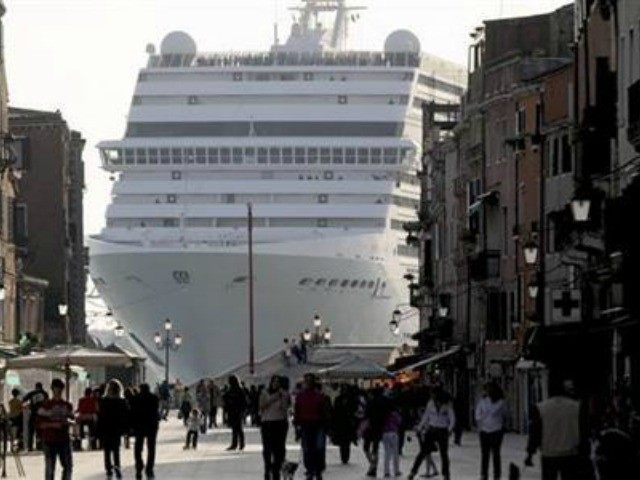Self-relegated to Iraq and Syria, just months ago ISIS seemed a distant threat to Italians and other Europeans. Having set up Libyan strongholds along the Mediterranean coast, however, ISIS is now on Europe’s doorstep. The latest threat is to Mediterranean cruise ships– those, for instance, that go from Sicily up the Italian coast to the south of France, or bop from one Greek island to another.
The Italian Ministry of Defense has outlined various grim scenarios whereby ISIS would engage in Somali-style piracy on the Mediterranean, menacing shipping companies and cruise ships.
The report states: “Having gained control of some ports and of vessels of various descriptions and with the possibility of taking advantage of the experience accumulated by the people traffickers working the migratory routes for years, ISIS could repeat the scenario that has dominated the maritime region between Somalia and Aden for the last ten years.”
The report details what how this might play out: “Speed boats could attack fishing boats, cruise ships, small merchant ships, as well as coast guard in this case more to capture prisoners to exhibit in orange jumpsuits and a knife to the neck (and to ask for lucrative ransoms for them).”
Various representatives of cruise lines have stepped forward to downplay the predictions of the Italian ministry, underscoring the safety of their routes, security policies and staff.
There has been no talk as yet about changing or eliminating routes, and there is no public discussion of bringing armed soldiers aboard, in part because the ships are already endowed with private security teams, often made up of former law enforcement officers.
The Cruise Lines International Association (CLIA), for example– whose members include, among others, Costa Cruises, MSC Cruises and Royal Caribbean– is doing its best to put a good face on the situation.
In a brief statement, the CLIA said that though they cannot reveal the details of the security measures employed by individual cruise lines, “we can ensure that they remain in constant contact with the national and international authorities with regard to safety. On board there are security professionals full-time, who are committed only to ensure the safety of passengers and crew.”
The CLIA also said that the various cruise companies “work closely with authorities around the world and have strict procedures to ensure the safety of passengers and crew.” These include the scanning of documents and “specific systems able to confirm the identity of the passengers in the early stages of embarkation and disembarkation.”
Gianno Onorato, the CEO of MSC Cruises, explained that the company has no ships that pass close to Libya and moreover is “in close contact with the Foreign Ministry and with international organizations.” He also said that ports “are under strict surveillance” and that the ships at sea “are followed by a special system that allows the authorities to monitor the routes.”
Another cruise company, Costa Crociere, with 12 of its 15 ships in the Mediterranean, declared that it “considers the safety of guests and crew as the top priority and is closely monitoring the international situation.” It also stated that the company “is in constant contact with the relevant authorities to ensure the safety of their operations and activities” and is constantly monitoring “the evolution of the situation.”
Company representatives also noted that there are no plans for any of their cruise ships to have stopovers in Libya.
Follow Thomas D. Williams on Twitter @tdwilliamsrome.

COMMENTS
Please let us know if you're having issues with commenting.